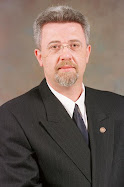Earlier that month, Gov. Palin posted on her Facebook page that President Obama's health care plan might kill her child. Her statement came on the heels of renowned economist Thomas Sowell pointing out that, in addition to the fact that this is not a health care reform but a health care insurance/payment reform, government reform will not reduce cost—it will simply refuse to pay for costs.
Gov Palin’s prognosticative assertion : “The America I know and love is not one in which my parents or my baby with Down Syndrome will have to stand in front of Obama's "death panel" so his bureaucrats can decide, based on a subjective judgment of their "level of productivity in society," whether they are worthy of health care. Such a system is downright evil” at the time was considered extreme and far fetched even by the critics of health payment reform.
Let's return to the proceeding of the International Euthanasia Task Force, 1995 where this author, and than the President of the Pacific Division of the National Association of Managed Care Physicians was quoted saying that as the direct result of proliferation on managed care: “Most ominous, is the possibility that facilitated suicide or simply withholding care might someday be viewed as a cost-cutting measure. I’m sure there will be pressure from the business side to turn to physician-assisted suicide or another form of rationing since something like 70% of expenditures occurs in the last six months of life.”
Further, I asserted that such rationing tools will be applied to the most vulnerable segments s of a population:: the very young, the sick, the elderly and disabled, to begin with. My sentiment at the time was echoed by Rev. Brad Karelius of Episcopal Church of the Messiah in Santa Ana, California, an expert on the issues of death and dieing: “Money will move the decision to kill people”, he said.
Fast forward to November 14, 2010: Paul Krugman, Princeton University professor and New York Times columnist who won the Nobel Prize in economics in 2008, said on November 14, 2010 that “death panels” may be needed to help curb the nation budget deficit.
“Some years down the pike, we’re going to get the real solution, which is going to be a combination of death panels and sales taxes,” he said. “It’s going to be that we’re actually going to take Medicare under control, and we’re going to have to get some additional revenue, probably from a VAT. But it’s not going to happen now.”
“Health care costs will have to be controlled, which will surely require having Medicare and Medicaid decide what they’re willing to pay for — not really death panels, of course, but consideration of medical effectiveness and, at some point, how much we’re willing to spend for extreme care,” he later clarified on his blog.
Needles to say, adding approximately 45M patients to the system, while mandating extended coverage will exponentially increase costs of health care.
The system will be further burdened by increased consumption of health care by aging baby-boomers and medical complications from younger obese generation.
The rationing of health resources is here to stay for the foreseeable future!
Calling it utilization review, health assetmanagement, allocation of medical resources, gatekeeper, cost-sharing, means testing are all health care rationing codes-limitating access to equitable distribution of medical services through various controls.
Inevitably, difficult decisions will be routinely made based on medical futility or survivability.
Futility is a concept that is inextricably bound to social understanding of the nature and purpose of the practice of medicine and the nature of the relationship between patient and health care provider.
Medical futility refers to the belief that in cases when there is no hope for improvement of an incapacitating condition where no course of treatment is called for.
It is distinct from the idea of euthanasia because euthanasia involves active intervention to end life, while withholding futile medical care, in theory, does not encourage, nor speed the natural onset of death.
The issue of futile care in clinical medicine generally involves two questions. The first, concerns the identification of those clinical scenarios where the care would be futile.
The second, concerns the range of ethical options when care is determined to be futile. Some people argue that futile clinical care should be a market commodity able to be purchased just like cruise vacations or luxury automobiles, as long as the purchaser of the medical services has the necessary funds and as long as other patients are not being denied access to clinical resources as a result.
With rising medical care costs and an increase in extremely expensive new anti-cancer medications, the same issues of equity often arise in treatment of end-stage cancer.
Because the issue of control within the physician-patient relationship is often understood in terms of competing or clashing values, there is a strong urge to find a value-free definition of futility.
Today, no such definition, and each and every Granny will be allowed to pass if she clearly and convincingly meets existing definitions of medical futility, or meets the stringent criteria for Physician Assisted Suicide.
The concept of social utility is also taken into consideration by healthcare providers. Mostly on subconscious level it's derived from patient’s real or perceived socio-economic status, physical or mental disability (real or perceived) and other incapacity.
In clinical reality, it's difficult to cleanly seperate moral and utilitarian arguments, and in practice they often appear together.
Obviously, no human or group of humans can assign social value to another human life.
Unfortunately, from a practical standpoint, social utility determination process and that of medical futility for a member of hospital’s Board of Directors would vary if not outright discriminatory compared with similar considerations for a severely retarded homeless person sleeping in the hospital parking lot.
Soon, the issues of social utility will be much easier to resolve, at least in the City of New York. Starting January 2012, New York City will begin charging private hospitals as much as $1 million a year for hospital ambulances dispatched by the city 911 system prompting hospitals to stop providing this service.
Most effected hospitals are in under-served areas, and are safety-net providers, operating on razor-thin margins or even running deficits, in vulnerable communities citywide.
Once these hospitals drop out of the system patients will suffer because of longer waiting time and lack of access to appropriate timely care. The City of New York will benefit by collecting the exorbitant fees and by withholding proper care to its citizens.
It is clear that rationing of health care resources must not be left to Mr. Obama’s bureaucrats, hospitals or even individual physicians.
Such decisions must rest with a thanatology team of experts in death and dying.Thanatology team should consist of a panel of at least two independent specialists isolated from onsiderations of social utility, patient family/primary physician; pain management expert, home/hospice care provider, social worker, clergy/spiritual and legal advisers.
In the mean time, let's make sure Granny receives appropriate medical care regardless of age, race, financial condition, or social status despite Obama "reform", better described as health deform!
We gripe, you decide!

 Interestingly, the Sunbeam Medical Association, aka American Medical Association (AMA), a "Johny-come-lately" to physician-provider partnership cause, is silent on the mater? Shame on them!
Interestingly, the Sunbeam Medical Association, aka American Medical Association (AMA), a "Johny-come-lately" to physician-provider partnership cause, is silent on the mater? Shame on them!



